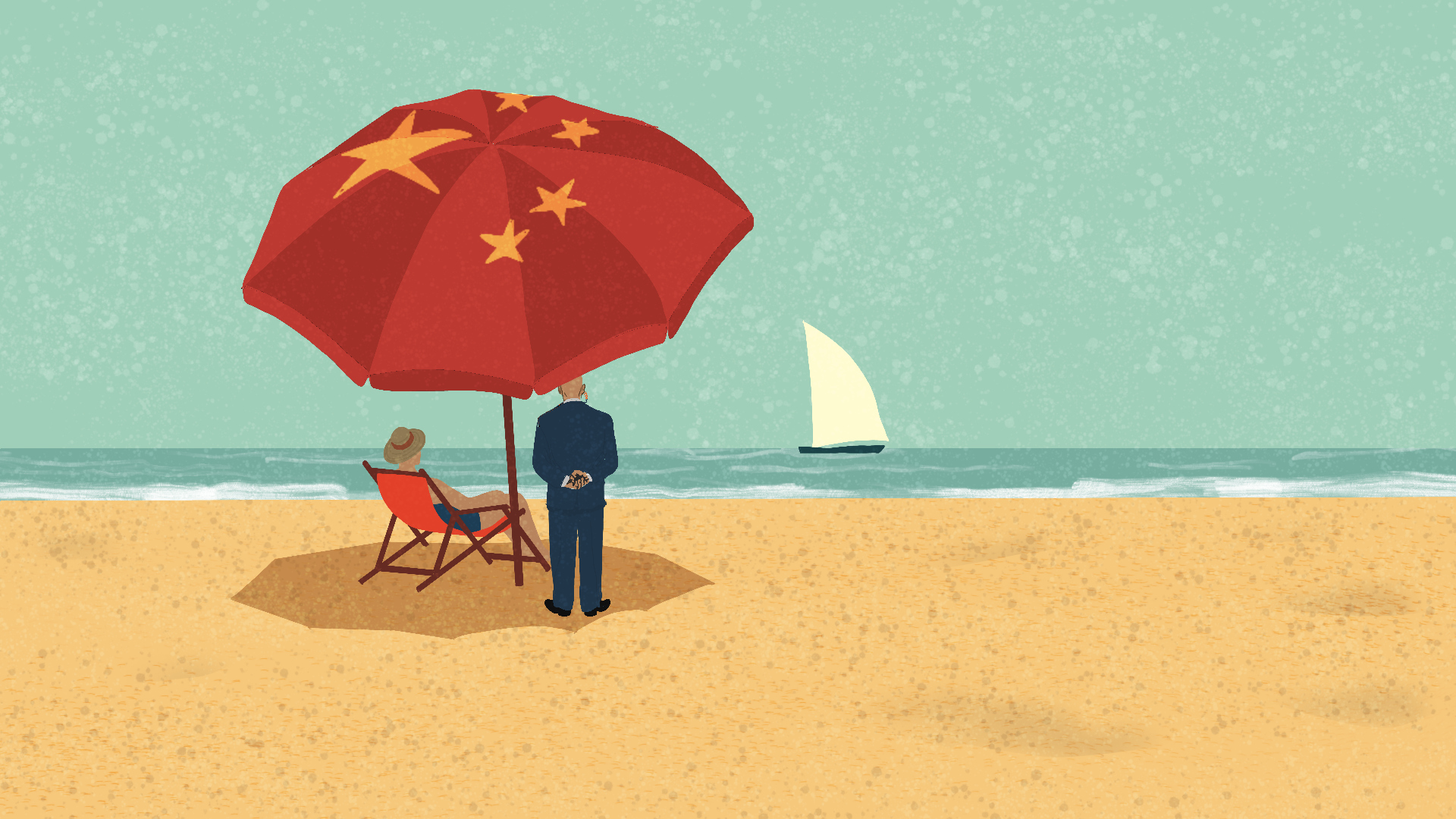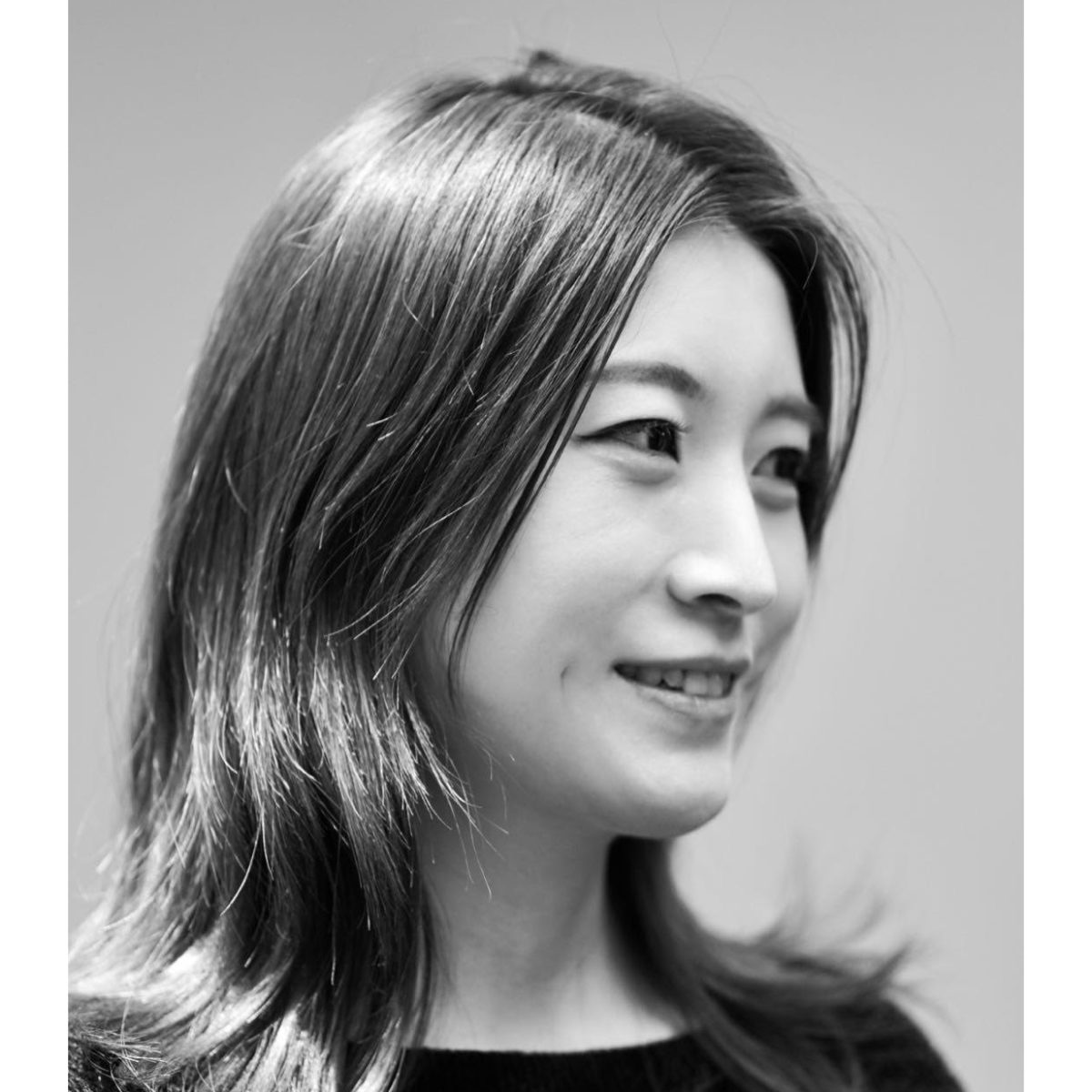
A secretive annual gathering of China’s top leaders in a coastal resort is one of the most anticipated events in Beijing's political calendar every year. How might this year’s meeting go?
Chinese leaders’ secretive annual gathering in the coastal resort of Beidaihe (北戴河 běidàihé) has long been one of the most anticipated events in Beijing’s political calendar. Hungry for good gossip, observers pounce on even the tiniest of breadcrumbs that catch the public eye.
After attending the Chinese Communist Party Central Committee’s 32nd collective study session on July 30, Xí Jìnpíng 习近平 and other key leaders quietly disappeared from state television news bulletins. The sudden absence was a familiar sign: The two-week annual Beidaihe summer conclave has begun.
1. So what is the Beidaihe retreat, and why is it important?
Ostensibly, the long break in the northern resort town gives leaders a chance to unwind from their hectic daily routines — time to relax, contemplate, and entertain guests in an informal setting. But as the country’s most powerful individuals gather in these heavily guarded compounds, serious political discussions also take place in small, informal groups.
Nicknamed the “summer capital,” Beidaihe has been the birthplace of many major decisions in the history of Party leadership. Notable examples include:
- Máo Zédōng 毛泽东 and his 1958 decision to launch over 40,000 rounds of artillery at the KMT-controlled Kinmen Island, which escalated into the Second Taiwan Strait Crisis;
- Mao’s blueprint for the nation’s second Five-Year Plan (1958–1962), better known as the Great Leap Forward (大跃进 dàyuèjìn), which subsequently led to the deaths of up to 45 million people; and
- Dèng Xiǎopíng 邓小平 and his “Stern Blow” (严打 yándǎ) Campaign of 1983, a massive anti-crime initiative that continued sporadically over the next three decades before it was rebranded under Xi Jinping.
Not all decisions coming out of Beidaihe are this ill-fated. Although one can never be sure what happens behind closed doors, Beidaihe sessions leading up to the twice-in-a-decade National Congress tend to feature discussions on important personnel changes. Rising stars jostle for positions, current Party bosses set the agenda and gauge the sentiment of the room, power brokers cement ties and realign political camps, and Party elders weigh in on current affairs.
Conversations are known to be quite frank, even contentious at times, as Party leaders believe getting on the same page in private is the best way to avoid public disagreements, which could hurt the facade of unity.
2. The state media outlets never announce official dates for the Beidaihe meetings. How do we know it indeed happens every year?
Well, it doesn’t happen every year! The tradition of the Beidaihe retreat was suspended during the Cultural Revolution (1966–1976) as the country sank into chaos. It would not be reinstated until the summer of 1984. The biennial work-vacation was called off again as Hú Jǐntāo 胡锦涛 took office in 2003 before Xi Jinping brought the quaint northeast resort back into the spotlight by resuming the summer ritual in 2013.
Since then, the Beidaihe retreat seems to have returned to its late July through early August schedule, although there was speculation that it was canceled last year due to COVID-related restrictions.
Unlike other heavyweight political gatherings, official media outlets tend to downplay the Beidaihe activities, lending them an even more mystical allure. But there are a few signs we can use to keep track of the Beidaihe sessions.
The most salient is the noticeable increase in security around Beidaihe prior to the meeting. Sniffer dogs are seen patrolling public transit and other facilities. Paramilitary officers stand by the metal mesh fence — which separates the quiet exclusive oceanside villas from the crowded public beach — and warn off onlookers. Hawk-eyed plainclothes officers disguised as tourists carefully watch the waterfront with binoculars. A good number of limos with dark tinted windows discreetly whiz through the streets.
Some other customary events usually coincide with the onset of the Beidaihe sessions in late July or early August. Pay attention to reports of the Party secretary of Hebei paying a special visit to the city of Qinhuangdao, where Beidaihe is located, to “inspect traffic checkpoints,” urging local officials to implement security measures strictly. Also, look for a high-profile meet-and-greet between Party leaders and the nation’s most prestigious scientists and scholars. A notable exception was 2020, when no such events occurred due to pandemic-related restrictions on in-person visits.
The Ministry of Foreign Affairs’ blue room will be unusually quiet as the regular daily press briefings are suspended for the duration of the Beidaihe gathering.
Party leaders’ whereabouts also provide important clues. For example, if top leaders mysteriously disappear from state media en masse for several days in early August, chances are they are at Beidaihe for the holidays. But there are caveats to this general rule, as urgent matters take precedence over the summer vacation.
This year, for example, quite a few people are absent. Sūn Chūnlán 孙春兰, the Politburo member in charge of public health affairs, was dispatched to Nanjing, the focal point of the latest COVID outbreak, followed by the virus-hit city of Zhengzhou, the site of last month’s deadly floods.
The Party secretary of Tianjin, Lǐ Hóngzhōng 李鸿忠, paid a special visit to the Wuqing station along the Beijing-Tianjin intercity train route, calling for strict pandemic prevention measures “as strong as the moat” to insulate the capital from COVID flare-ups. In addition, Guangdong Party Secretary Lǐ Xī 李希, Chongqing Party Secretary Chén Mǐn’ěr 陈敏尔, and Xinjiang Party Secretary Chén Quánguó 陈全国 all made public appearances to attend to COVID-related inspections in their home provinces.
3. Are there any significant decisions that will come out of the Beidaihe retreat this year?
Not really. The reasons are twofold.
In Xi Jinping’s era, a prominent feature of collective leadership — resolving disagreements between factions — has become less relevant. Xi has leveraged the momentum of the anti-corruption campaign to purge his opponents as well as snare their political lieutenants and business associates.
While the campaign — which some have dubbed “kill the chicken to scare the monkey” after a Chinese proverb — might not have been fully supported by Xi’s fellow Party comrades, it has gradually siphoned power from the vast bureaucracy into his own hands, depleting his opponents of the infrastructure, resources, and network to mount any meaningful challenges.
Furthermore, retired Communist Party elders, who used to be regular attendees and vocal contenders at Beidaihe, no longer hold much sway over important decisions. Whether they still maintain any clout is an open question. Still, they are unquestionably fading away from China’s political arena, as Xi’s trusted aides have taken over the crucial positions in the Party, government, and military. Even showing up is a challenge. The former Communist Party leaders Jiāng Zémín 江泽民 and Zhū Róngjī 朱镕基, 94 and 92 years old, respectively, were conspicuously absent from the centennial of the founding of the Communist Party and are believed to be in poor health condition. The pandemic and COVID-related risks also likely prevent the Party elders from attending the Beidaihe retreat in person.
4. So, what are the Chinese leaders doing at Beidaihe this year?
“My best guess is that it is more like a genuine holiday,” says Pin Ho (何频 Hé Pín), the founder of the New York–based Mingjing Media Group and a veteran journalist on Chinese elite politics for more than 30 years.
Ho explains: “When Xi altered the constitution to allow himself to remain as president beyond two terms, people were aghast and called him the New Mao Zedong. Both are masters of a kind of bare-knuckle statecraft, but their approaches are different. Mao thrived in chaos. He enjoyed sowing discord between various factions, playing one group of provocateurs off another to deplete them both. And Beidaihe was the perfect occasion to play that kind of cloak-and-dagger politics. Beidaihe in Deng’s era was somewhat similar. But Xi is different. He wants iron-fisted control and stability. And Xi is much closer than Mao to achieve ultimate dominion over the CCP.
“Paradoxically, Xi can also be an adamant observer of structures, routines, and conventions, which people tend to ignore given how many rules he has jettisoned,” adds Ho.
“Xi believes important matters should be decided during the monthly Politburo gatherings. The standing member meeting, ostensibly held among China’s most powerful seven people, is less of a recurring calendar event and much less important in terms of bringing about substantial policy changes. With these structures already in place, and with his firm command of the Party, Xi doesn’t need to carve out another informal summer retreat session to discuss anything of significance.”
“He will likely take the time to check in with people, give them some face time, and chat about personal matters,” concludes Ho.
5. Does it mean Xi Jinping can finally relax at Beidaihe?
Xi still has a long list of to-dos that keep him up at night. China is in the process of combating an ominous uptick in daily COVID cases.
In the middle run, the country’s investment-driven growth model is running out of steam. The national debt levels have climbed inexorably to nearly four times of GDP. Chinese companies’ bond defaults amounted to $9.7 billion in the first half of 2021, the highest ever.
China also faces long-term domestic socioeconomic challenges, including an aging population, imbalanced rural-urban development, and growing income inequality.
The trade war with the U.S. is still raging, while both countries have been embroiled in fierce competition to dominate tech innovation.
Mao Zedong, an avid swimmer, loved waddling into the salubrious Beidaihe waters for hours of ocean bliss. Beidaihe was Mao’s way of escaping the Beijing summer heat, according to Party historians. Mao’s ability to float was also meant to deliver a political message: He could combat “great wind and great waves” (大风大浪 dàfēng dàlàng) while lying on his back “gazing afar at the spotless sky” (极目楚天舒 jí mù chǔ tiān shū).
Xi has never been seen swimming in public. But in a 2012 written Q&A interview with the Washington Post, Xi said, “I like sports, and swimming is my favorite.”






